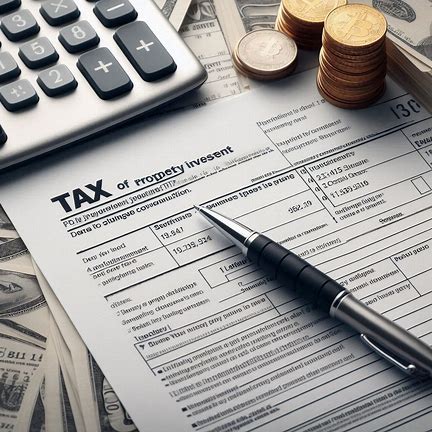A Comprehensive Guide to Buying Property Behind on Taxes
Purchasing property with delinquent taxes can be a lucrative investment strategy, but it requires careful consideration and due diligence. In this guide, we’ll explore the process, benefits, and potential pitfalls of buying tax-delinquent properties.
Understanding Tax-Delinquent Properties
When property owners fail to pay their property taxes, the local government places a lien on the property. If the taxes remain unpaid, the government can eventually sell the property to recover the owed taxes. These properties are often sold at tax lien auctions or tax deed sales.
Steps to Buying Tax-Delinquent Properties
1. Research and Find Opportunities
Start by researching properties that are behind on taxes. County tax assessor and treasurer websites often provide lists of tax-delinquent properties. Public records and local government offices can also be valuable resources.
2. Understand the Local Laws
Tax sale procedures vary by state and county. Familiarize yourself with the local laws and regulations regarding tax lien and tax deed sales. This will help you understand the auction process, redemption periods, and other critical details.
3. Due Diligence
Conduct thorough due diligence on the property. This includes:
– Property Condition: Inspect the property, if possible, to assess its condition and any potential repairs needed.
– Title Search:Perform a title search to identify any other liens or encumbrances on the property.
– Market Value:Evaluate the market value of the property to ensure it’s a sound investment.
4. Attend the Auction
Tax lien and tax deed auctions can be held in person or online. Register for the auction and be prepared with the necessary documentation and funds. Set a budget and stick to it to avoid overbidding.
5. Purchase and Secure the Property
If you win the auction, you’ll need to pay the bid amount, plus any additional fees. For tax lien purchases, you’re buying the lien and not the property itself. The property owner has a redemption period to pay off the lien. If they fail to do so, you can foreclose on the property. For tax deed sales, you’re purchasing the property outright.
Benefits of Buying Tax-Delinquent Properties
– Potential for High Returns:Purchasing properties at a discount can result in significant profit margins when reselling or renting the property.
– Diversification:Investing in tax-delinquent properties can diversify your investment portfolio.
– Helping Communities:By investing in and revitalizing neglected properties, you contribute to the improvement of local communities.
Risks and Challenges
– Redemption Periods: In tax lien states, property owners have a redemption period during which they can pay off their debt and retain ownership. This can delay your investment returns.
– Property Condition:Tax-delinquent properties may be in poor condition, requiring substantial repairs and renovation.
– Market Fluctuations: Changes in the real estate market can impact the profitability of your investment.
– Legal Complications: Additional liens, encumbrances, or legal disputes can complicate the purchase process and affect ownership rights.
Buying property behind on taxes can be a rewarding investment strategy if approached with caution and thorough research. Understanding the local laws, conducting due diligence, and being prepared for potential risks are crucial to success. With careful planning, you can capitalize on the opportunities that tax-delinquent properties offer, turning neglected assets into profitable investments.
By following this guide, you’ll be well-equipped to navigate the complexities of purchasing tax-delinquent properties and make informed investment decisions.
